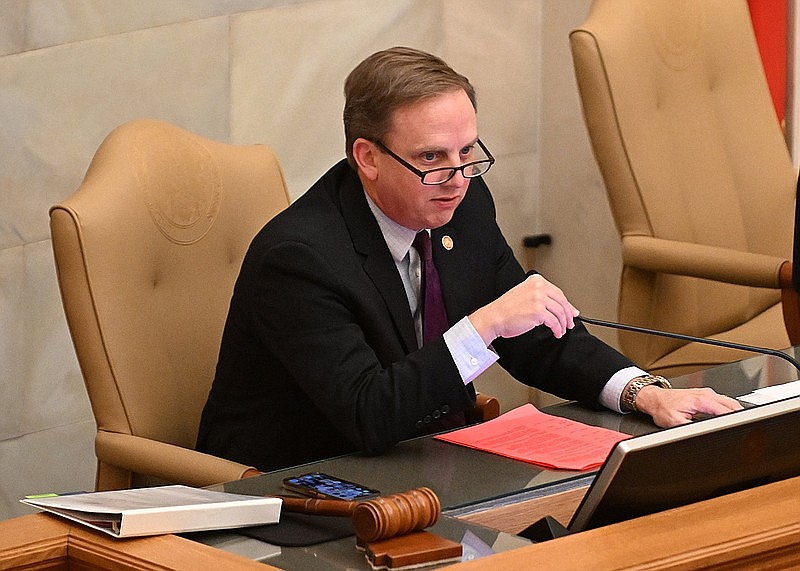Arkansas House Speaker Matthew Shepherd filed a bill on Thursday intended to protect consumers who shop online and on secondary markets for tickets to sporting and other entertainment events.
House Bill 1650, which would create the "Event Ticketing and Resale Consumer Protection Act," aims to regulate how people and companies purchase resale tickets. The measure also addresses refund policies and creates violations for producing counterfeit tickets.
Shepherd, R-El Dorado, said Thursday the bill is needed to protect consumers from marketplaces already in operation.
"Anybody knows that if you want to find a ticket to a sporting event, you can go online and find that irrespective of what our state laws have to say," he said during an interview. "This is just something that I think will be productive and will hopefully provide some guidance in that space."
Senate President Pro Tempore Bart Hester, R-Cave Springs, is sponsoring the bill in the Senate.
Shepherd said no particular event spurred him to file the bill and that he worked on the legislation with the University of Arkansas. He said the measure is intended to bring Arkansas in line with other states that have already adopted similar legislation.
Under the bill, tickets to a college sporting event in Arkansas for sale to the general public would be first made available for sale by the institution of higher education or its designee at a price no more than the face value of the ticket, but could include associated transactional fees and costs, for no less than 10 days.
Among other exclusions, this section of the bill wouldn't apply to tickets to events issued, hosted or sold by a third-party vendor, tickets for internal or complementary usage, or the tickets reserved by an institution of higher education for fundraising directly or through an affiliated entity.
Unless authorized, the operator of a ticketing platform for an event scheduled in Arkansas would not be intentionally allowed to use a website domain name or any subdomain containing the name of a specific team, league or venue where events are held. Platform operators also could not use trademarks they do not own or the name of a person, performance, group or entity scheduled to perform at the event or venue.
The bill also would bar people or groups from knowingly selling or providing software designed to interfere with the operations of any ticket issuer by circumventing any security measures, "access control systems" or other measures of the issuer's platform intended to ensure equitable ticket purchasing.
Unless permitted, a person or group that knowingly purchases more tickets from an original ticket issuer than the maximum limit posted by the issuer, and intends to resell tickets in violation of the bill, would be engaging in an unfair or deceptive trade practice under the bill.
A ticket seller or reseller for an event or venue in Arkansas would have to guarantee consumers will receive their tickets in a reasonable time for the event and that the tickets would provide valid entry to the event or venue. The seller or reseller would have to maintain a phone number, an email address or live virtual support that customers could use to file complaints or request service.
The bill includes conditions under which ticket sellers and resellers would have to provide a full refund or replacement tickets, including if the ticket a consumer receives is counterfeit, the ticket is canceled by the ticket issuers, or the ticket fails to conform to the description provided by the ticket issuer or reseller. A ticket seller or reseller would violate the state's Deceptive Trade Practices Act if they failed to properly refund tickets under the bill.
A person or group that counterfeits, forges, alters, clones or possesses a ticket or other item used to gain admission to an event or venue with intent to defraud the event or venue commits a Class A misdemeanor under the bill. Subsequent counterfeit violations would be Class D felonies.
Violations of the bill could upon conviction lead to a fine of no less than $100 and no greater than $500. Every sale or resale, or offer for sale or resale, that is in violation would be considered a separate offense. An institution of higher education would not be held criminally or civilly liable for violations, under the bill.
